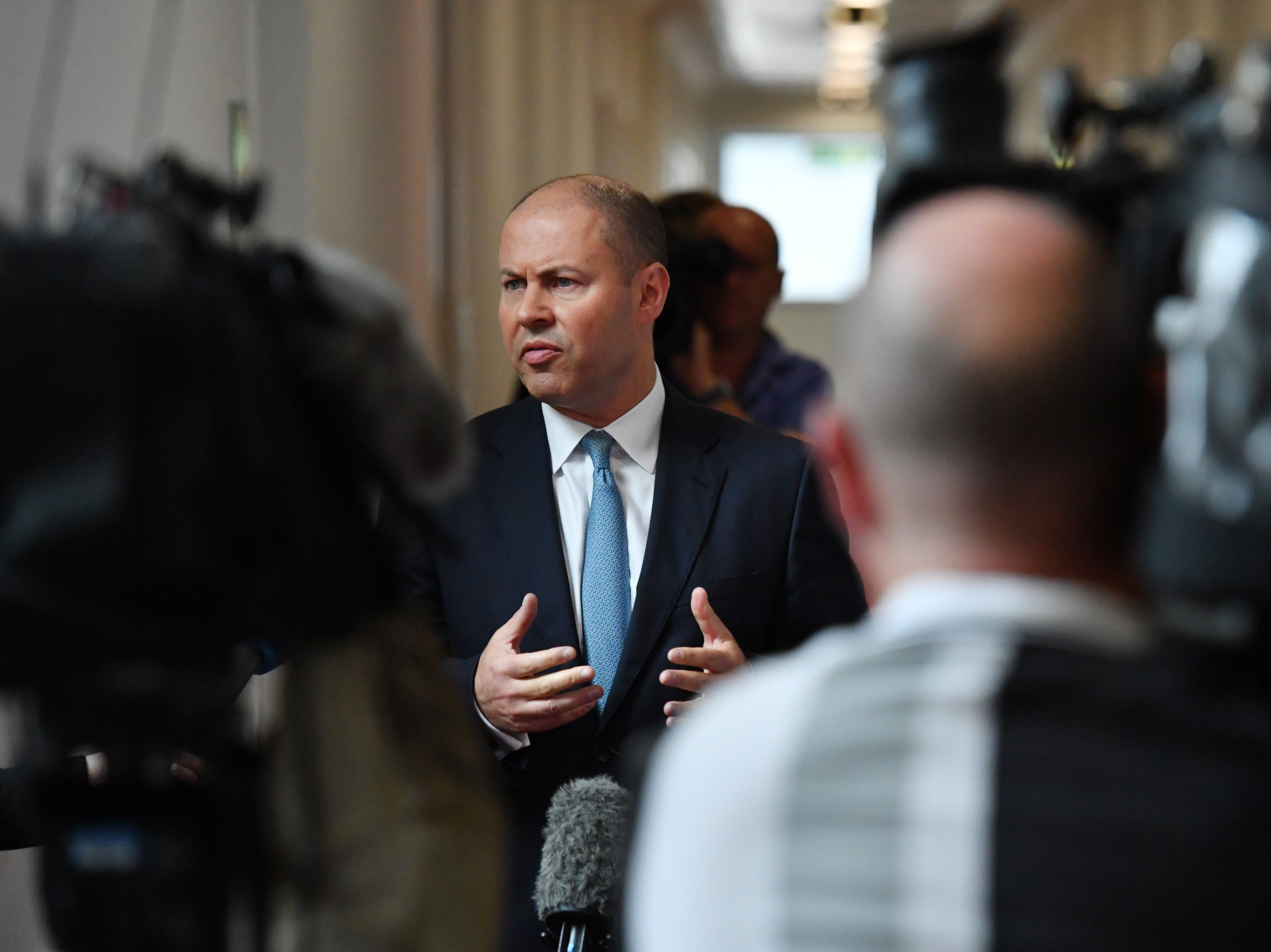Australia will not be intimidated by Facebook ‘unfriending’ it, says Scott Morrison
Government calls news ban over legislative dispute ‘assault on sovereign nation’

Your support helps us to tell the story
From reproductive rights to climate change to Big Tech, The Independent is on the ground when the story is developing. Whether it's investigating the financials of Elon Musk's pro-Trump PAC or producing our latest documentary, 'The A Word', which shines a light on the American women fighting for reproductive rights, we know how important it is to parse out the facts from the messaging.
At such a critical moment in US history, we need reporters on the ground. Your donation allows us to keep sending journalists to speak to both sides of the story.
The Independent is trusted by Americans across the entire political spectrum. And unlike many other quality news outlets, we choose not to lock Americans out of our reporting and analysis with paywalls. We believe quality journalism should be available to everyone, paid for by those who can afford it.
Your support makes all the difference.The Australian prime minister, Scott Morrison, has lashed out at Facebook for trying to “unfriend” his country with an unexpected ban on news.
The US tech giant blocked users in Australia from sharing news on its platform in a stunning act of retaliation against government moves to make the firm pay for Australian journalism.
Mr Morrison said his government would not be “intimidated” into changing its stance in the legislative dispute over content.
“Facebook’s actions to unfriend Australia today, cutting off essential information services on health and emergency services, were as arrogant as they were disappointing,” said the prime minister.
The PM’s statement, posted on his own Facebook page, added: “We will not be intimidated by big tech seeking to pressure our parliament.”
Early on Thursday morning Australian news organisations discovered they could not post stories. Australian Facebook users who tried to share existing news stories received notifications saying they were blocked from doing so.
Australian ministers immediately condemned the decision, which also prevented the sharing of some government communications – including messages about emergency services – as well as some commercial pages.
Mr Morrison said the company’s actions “will only confirm the concerns that an increasing number of countries are expressing about the behaviour of big tech companies who think they are bigger than governments”.
The prime minister added: “They may be changing the world, but that doesn’t mean they run it.”
Australian health minister Greg Hunt told parliament it was “an assault on a sovereign nation”, adding: “It’s an utter abuse of big technologies’ market power and control over technology.”
Both Facebook and Google have threatened retaliation if Australia created a new law aimed at ensuring media businesses receive fair payment for their journalism being linked on those platforms.
The digital giants would not be allowed to abuse their dominant negotiating positions by making take-it-or-leave-it payment offers to news businesses, under the proposals. If a news business refused to budge, an arbitration panel would make a binding decision on a winning offer.

Facebook said the proposed Australian law “fundamentally misunderstands the relationship between our platform and publishers who use it”.
However, the company’s move to block content in Australia received international condemnation.
Julian Knight, chair of Britain’s digital, culture, media and sport committee, said it was a staggeringly irresponsible attempt to bully a democracy and that it would stiffen the resolve of legislators across the world to get tough with the tech giants.
He told Reuters: “This action – this bully boy action – that they've undertaken in Australia will, I think, ignite a desire to go further amongst legislators around the world.
“We represent people and I'm sorry but you can’t run bulldozer over that – and if Facebook thinks it'll do that it will face the same long-term ire as the likes of big oil and tobacco.”
His comments were echoed by Henry Faure Walker, head of the UK’s news media trade group, who said Facebook’s ban was “a classic example of a monopoly power being the school yard bully, trying to protect its dominant position with scant regard for the citizens and customers it supposedly serves”.
Australian treasurer Josh Frydenberg said he informed Facebook chief executive Mark Zuckerberg that the country remained committed to implementing the proposed media payment law during continued talks on Friday morning.
He added in a tweet: “We talked through their remaining issues and agreed our respective teams would work through them immediately. We'll talk again over the weekend.”
Canada has vowed it will also make Facebook pay for news content, seeking allies in the media battle with tech giants and pledging not to back down if the social media platform shuts off the country’s news as it did in Australia.
Canadian heritage minister Steven Guilbeault, in charge of crafting similar legislation to be unveiled in coming months, told reporters: “Canada is at the forefront of this battle ... we are really among the first group of countries around the world that are doing this.”
Additional reporting by agencies



Join our commenting forum
Join thought-provoking conversations, follow other Independent readers and see their replies
Comments